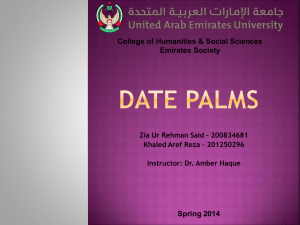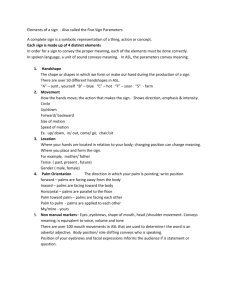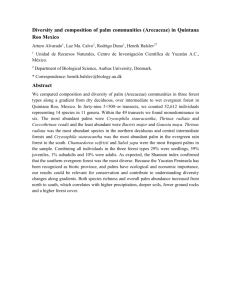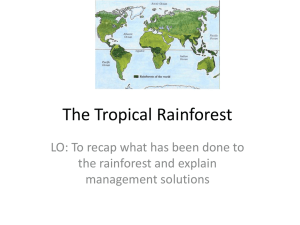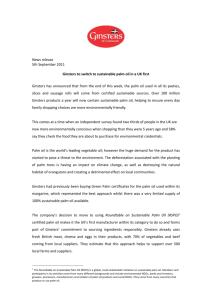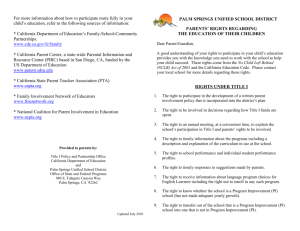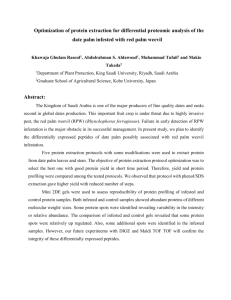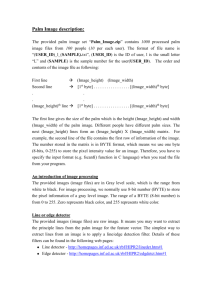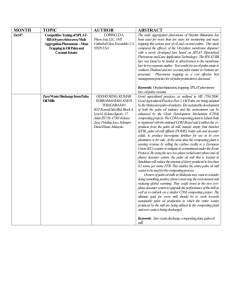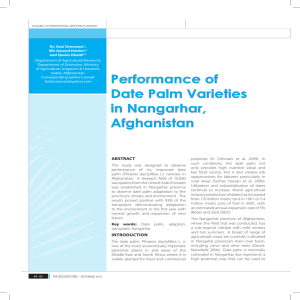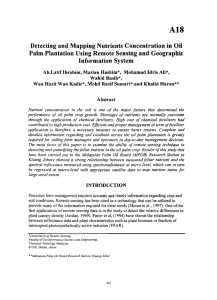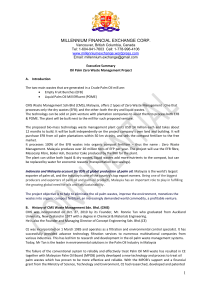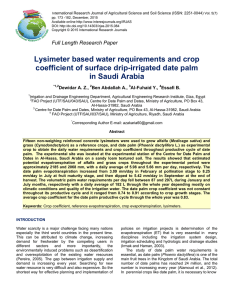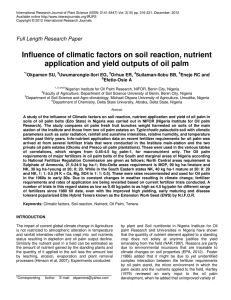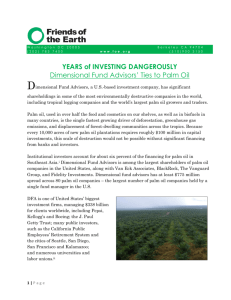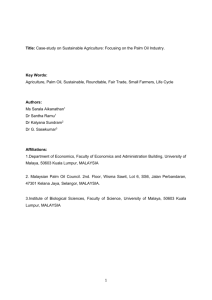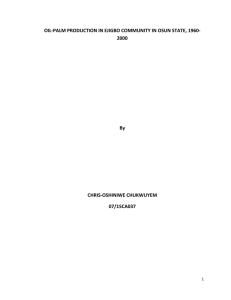Best Developed Practices and Sustainable Development of the Oil
advertisement
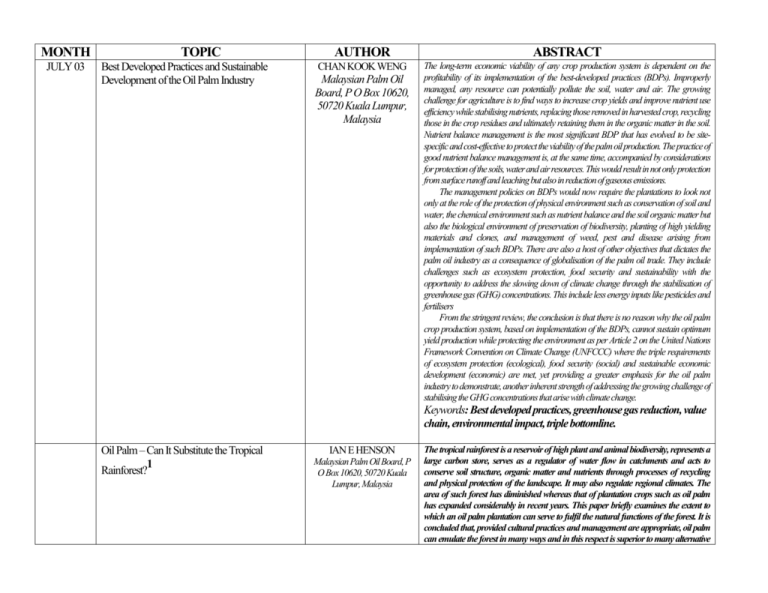
MONTH JULY 03 TOPIC Best Developed Practices and Sustainable Development of the Oil Palm Industry AUTHOR ABSTRACT CHAN KOOK WENG The long-term economic viability of any crop production system is dependent on the profitability of its implementation of the best-developed practices (BDPs). Improperly managed, any resource can potentially pollute the soil, water and air. The growing challenge for agriculture is to find ways to increase crop yields and improve nutrient use efficiency while stabilising nutrients, replacing those removed in harvested crop, recycling those in the crop residues and ultimately retaining them in the organic matter in the soil. Nutrient balance management is the most significant BDP that has evolved to be sitespecific and cost-effective to protect the viability of the palm oil production. The practice of good nutrient balance management is, at the same time, accompanied by considerations for protection of the soils, water and air resources. This would result in not only protection from surface runoff and leaching but also in reduction of gaseous emissions. The management policies on BDPs would now require the plantations to look not only at the role of the protection of physical environment such as conservation of soil and water, the chemical environment such as nutrient balance and the soil organic matter but also the biological environment of preservation of biodiversity, planting of high yielding materials and clones, and management of weed, pest and disease arising from implementation of such BDPs. There are also a host of other objectives that dictates the palm oil industry as a consequence of globalisation of the palm oil trade. They include challenges such as ecosystem protection, food security and sustainability with the opportunity to address the slowing down of climate change through the stabilisation of greenhouse gas (GHG) concentrations. This include less energy inputs like pesticides and fertilisers From the stringent review, the conclusion is that there is no reason why the oil palm crop production system, based on implementation of the BDPs, cannot sustain optimum yield production while protecting the environment as per Article 2 on the United Nations Framework Convention on Climate Change (UNFCCC) where the triple requirements of ecosystem protection (ecological), food security (social) and sustainable economic development (economic) are met, yet providing a greater emphasis for the oil palm industry to demonstrate, another inherent strength of addressing the growing challenge of stabilising the GHG concentrations that arise with climate change. Malaysian Palm Oil Board, P O Box 10620, 50720 Kuala Lumpur, Malaysia Keywords: Best developed practices, greenhouse gas reduction, value chain, environmental impact, triple bottomline. Oil Palm – Can It Substitute the Tropical 1 Rainforest? IAN E HENSON Malaysian Palm Oil Board, P O Box 10620, 50720 Kuala Lumpur, Malaysia The tropical rainforest is a reservoir of high plant and animal biodiversity, represents a large carbon store, serves as a regulator of water flow in catchments and acts to conserve soil structure, organic matter and nutrients through processes of recycling and physical protection of the landscape. It may also regulate regional climates. The area of such forest has diminished whereas that of plantation crops such as oil palm has expanded considerably in recent years. This paper briefly examines the extent to which an oil palm plantation can serve to fulfil the natural functions of the forest. It is concluded that, provided cultural practices and management are appropriate, oil palm can emulate the forest in many ways and in this respect is superior to many alternative agricultural uses. However, there will be an inevitable reduction in biodiversity and total carbon storage in plantations compared with forest and therefore it is important that a balance is struck between agricultural expansion and the conservation of natural forest area. Keywords: Oil palm, rainforest, biodiversity, carbon sequestration, hydrology.

